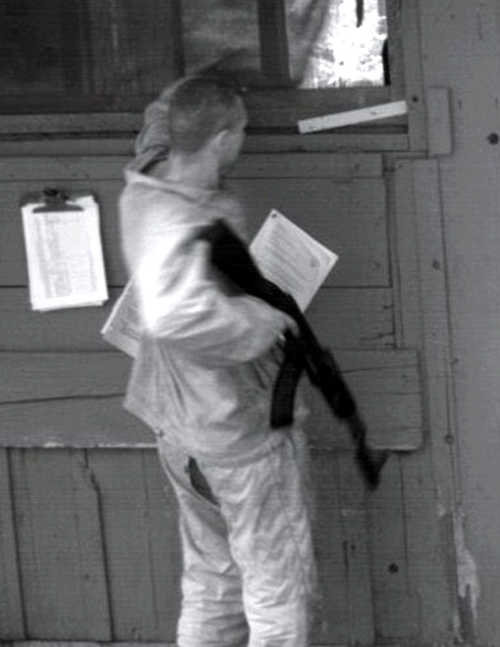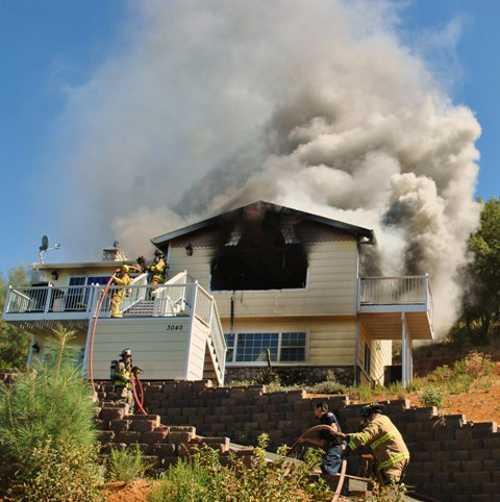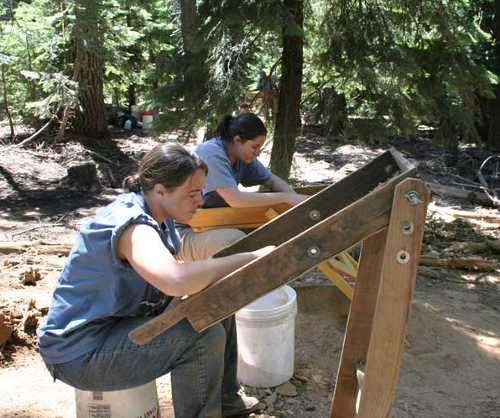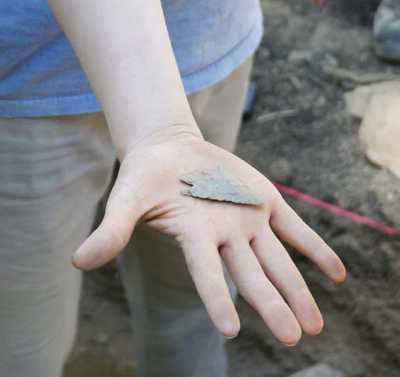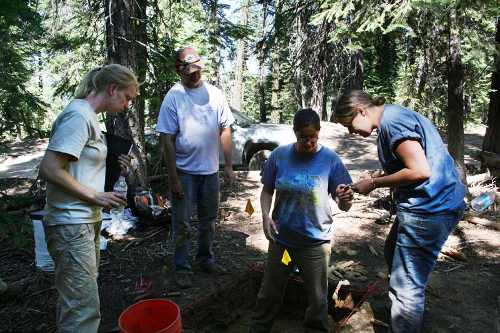LAKEPORT, Calif. – A lawsuit filed late last year against the local branch of a convalescent care home organization – which a federal judge ruled could move to class action – now is headed into mediation.
Last November, a case on behalf of Phyllis Wehlage, a resident of Evergreen Lakeport Healthcare, was filed against Evergreen California Healthcare and associated entities, including EmpRes Healthcare.
The case initially was filed in Sonoma County Superior Court – the corporation has a facility in Petaluma as well – and earlier this year the case was moved to the federal court's jurisdiction. A specific dollar amount in damages was not included in the filings.
Wehlage, who stayed at Evergreen Lakeport Healthcare in 2008, allegedly suffered “indignities and other harms” due to inadequate nurse staffing levels, the complaint stated.
In June federal court Judge Claudia Wilken ruled against EmpRes' and Evergreen's motion to have Wehlage's suit dismissed, clearing the way for the suit to become class action, according to court records.
However, earlier this month, following additional filings in the case, attorneys for EmpRes Healthcare filed a notice of mediation, which is supposed to commence in the case on Oct. 24.
Evergreen Lakeport Healthcare is a 99-bed skilled nursing facility for both long- and short-term needs, according to its Web site.
It's part of the larger, privately held Evergreen Healthcare Companies and EHC Management LLC, which are affiliates of EmpRes Healthcare, based in Vancouver, Wash. The corporation has skilled nursing and assisted living facilities across California, and in Idaho, Montana, Nevada, Oregon and Washington.
Messages left for Evergreen Healthcare's legal department and the lead attorney on the lawsuit were not returned.
Wehlage's attorneys, led by Michael Crowley, allege that the lawsuit is necessary because Evergreen Lakeport Healthcare is habitually understaffed.
The California Association of Health Facilities, a group representing an estimated 85 percent of California's nursing facilities, believes such litigation is damaging to the industry.
Mark Reagan, the association's attorney, called such lawsuits a “shakedown” of the industry.
Court documents explained that there was no response or long wait times for response to Wehlage's call light; she had lack of assistance for grooming and bathing; inadequate attention to toileting needs resulted in her sitting in a urine-soaked bed for hours; she suffered “rough and painful handling” by the facility's staff; and she was not assisted with eating or provided with the necessary fluids.
“All evils stem from understaffing, in my view,” Crowley told Lake County News.
Patricia McGinnis, executive director of California Advocates for Nursing Home Reform, agreed, arguing that most problems with health care quality in convalescent facilities are directly related to staffing.
“Understaffing is a chronic condition in California. There's no question about it,” said McGinnis, adding, “The problems that emanate from understaffing are huge.”
In addition, “We have a very, very poor enforcement system in California,” she said, noting that the system is “very provider oriented.”
McGinnis said there's an “easy answer” to these issues. “The state needs to go in and start doing enforcement and oversight.”
However, without that oversight, McGinnis believes that a lawsuit like that filed against Evergreen is the only remedy, as the state's complaint process is long and, in her view, often ineffective.
Reagan said the suits are in fact giving rise to problems for the industry. As one example, he said facilities looking for insurance are facing higher premiums because of the suits.
The association also argues that the state's licensed convalescent facilities are highly regulated and are meeting state and federal requirements for care.
In June Judge Wilken ruled there was a viable cause of action in Wehlage's case, and to address concerns the court had, Crowley and his team filed an amended complaint that named Evergreen's numerous other facilities as well as additional individual residents for the class action standing.
Crowley said the understaffing that is alleged in the case violates the Patients Bill of Rights, which includes the right to be in a facility that has sufficient staff to care for the needs of patients.
That bill of rights also lays out minimum state staffing requirements – including 3.2 nursing hours per day per patient – which the suit alleges Evergreen Lakeport violated.
McGinnis said convalescent facilities received an extra $1 billion in reimbursements between 2004 and 2008, but alleged that they still didn't meet state staffing requirements.
She said nursing home staff commonly are underpaid and have no health benefits, and as a consequence there is high turnover.
California Association of Health Facilities spokesperson Deborah Pacyna countered McGinnis' arguments on staffing levels, stating that the actual statewide staffing average is 3.6 hours per patient.
Pacyna said California convalescent facilities' hours of care surpass the the national average of 3.4 hours per day, and are beyond the statewide requirement of 3.2 hours per day per patient.
On June 29, Gov. Jerry Brown signed ABx1 19, which extended the Medi-Cal payment system for nursing homes until July 31, 2013, amounting to a Medi-Cal having to repay nursing homes about $400 million for a temporary rate cut, according to McGinnis.
McGinnis said her organization opposed the bill because it does not require facilities to use the money for staffing or care, and the system continues to lack meaningful accountability measures. She said those reimbursements should be used for patient care, not profits.
Reagan maintained that facilities are doing just what McGinnis said they should – providing greater care thanks to the government's reimbursement incentives.
According to the US government's Medicare site, www.medicare.gov, Evergreen Lakeport Healthcare is the lowest-ranked of three Lake County care facilities in Medicare's five star quality rating programs.
Evergreen's overall rating was one out of five stars, defined as “much below average.” It received one star for health inspections, two stars – “below average” – for staffing and three – “average” – for quality measures.
Inspectors found the facility had 13 health deficiencies – ranging from mistreatment, quality care, residents rights, nutrition and diet, pharmacy, environmental and administration – for the period of May 1, 2010, through July 31, 2011, two more than the average number of such deficiencies in California and eight more than the federal average.
A landmark case sets the stage
Crowley and law partner Tim Needham are “battle tested” in cases like Wehlage's. Crowley was lead trial counsel on a landmark class action case involving an estimated 32,000 plaintiffs versus Skilled Healthcare, a nursing home chain which owns 22 facilities, including all five of those located in Humboldt County.
In July 2010 a Humboldt County jury awarded the plaintiffs in the Skilled Healthcare case a $671 million verdict, the largest of its kind in the nation's history, following four and a half years of litigation and six and a half months at trial, Crowley said.
He called the Skilled Healthcare case a “perfect storm” in which he and his legal team were able to prove 1.3 million violations over a six-year period. The Humboldt County jury gave the plaintiffs in that case the maximum $500 penalty per violation.
The company later was allowed to settle for $50 million, which prevented it from going bankrupt, “which we were really not interested in doing,” Crowley said, adding they wanted the company “to function as a viable business that obeys the law.”
The court also issued an injunction in that case to ensure compliance, Crowley said.
“This is not unique to Skilled Healthcare,” said Crowley. “This is an industrywide practice,” and a practice that he said has become increasingly used despite laws like AB 1629, enacted to increase the size of medical reimbursements in order to increase staffing levels.
Rather than take that money and hire more staff, Crowley said such facilities are using it to increase profit margins – at the expense of patients.
The staff the facilities did have were paid “shockingly low” levels; in some cases, certified nursing assistants were not even paid minimum wage, he said.
The class action approach, Crowley said, is more effective, “because, quite frankly, we're dealing with corporations,” he said, adding, “They're not going to do the right thing because it's the right thing.”
A result of the verdict and injunction, said Crowley, was that every one of Skilled Healthcare's facilities began to aggressively hire certified nursing assistants, licensed vocational nurses and registered nurses.
“This hasn't been bad for business, this has been excellent for business,” he said, with more hires – and higher pay – set to result.
At first Skilled Healthcare's shares dropped, but they've since rebounded. “That company's in fine shape,” said Crowley, adding “We're not out to put anybody out of business,” but rather to change the industry's corporate culture.
In one way, the victory was hollow. “Most of our named clients died before trial,” said Crowley, with one woman surviving long enough to see the matter resolved.
Crowley argued that it was a victory for patients and a major wake up call for the industry.
However, the California Association of Health Facilities, has a markedly different view of such litigation.
Reagan said the group viewed the Skilled Healthcare award as “outlandish,” arguing that it was rendered by the jury without findings of patient suffering or harm.
“I think there was significant concern but certainly not panic under the circumstances,” Reagan said, in addressing the industry's reaction to the suit.
In the Skilled Healthcare suit, as in Evergreen Lakeport, Crowley alleged that the convalescent home industry has used understaffing as a business model.
In the Evergreen Healthcare suit, “there's very similar issues going on,” said Crowley.
“We think we can accomplish a social good with this,” Crowley said.
But Reagan and the California Association of Health Facilities don't share that opinion.
Reagan accused Crowley and his colleagues of being opportunists after having gotten “a very good result” in the Skilled Healthcare case.
There have been at least seven separate class actions brought by the same attorneys, said Reagan, trying to replicate an outcome that the association believes is not based on the facts.
In about half of those cases Reagan said the courts have dismissed the claims or limited them significantly.
Reagan believes that, ultimately, it will become “legally untenable” to carry out such awards against facilities.
E-mail Elizabeth Larson at This email address is being protected from spambots. You need JavaScript enabled to view it. . Follow Lake County News on Twitter at http://twitter.com/LakeCoNews, on Tumblr at www.lakeconews.tumblr.com, on Facebook at http://www.facebook.com/pages/Lake-County-News/143156775604?ref=mf and on YouTube at http://www.youtube.com/user/LakeCoNews .
November 2010 - Wehlage v. EmpRes Healthcare
